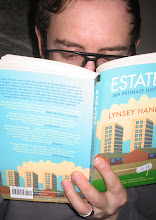Current read: Most Secret War by R.V. Jones
Where / how acquired: Second hand, after mention on uber-nerd site www.subbrit.org.uk
Vibe: Bit snobby and self-congratulatory but nonetheless gripping
My current read is this by ex-WW2 British scientific intelligence officer R.V. Jones – a detailed account of his work during the second world war to defeat the dastardly hun through quick wits, schoolboy gumption and the firm, steadying hand of science. It is actually very good, both a fascinating insight and a pacey narrative. It’s just that you firstly have to get over the Daily Mail-esque ‘if people in this country now worked like we did in the war we wouldn’t be in this mess’ (the book was published in 1979) and the general sense that the English-German bit of WW2 was a conker fight with slightly higher odds. The excellent Behind Closed Doors docu on BBC 2 at the moment, focusing so far at least on Stalin, reminds me that the vast majority of the war was won not by English grit and stiff upper lips but by the blood of many, many millions of Russians in particular. They starved and ate cats at Stalingrad, but held out, and then raped and pillaged their way back to Berlin, winning the most Pyrrhic of all victories. There’s very little that’s glamorous or worth celebrating about that – you don’t see a Russian Band of Brothers, do you?
As mentioned, the edition of this book that I’m reading was published in 1979. One of two things, mostly of tone, seem a bit dated but really not much. Why then is their such an industry in new books about the second world war – surely it’s all been said before? But it’s a massively popular and successful area of publishing at the moment. I was at a meeting recently where a new book by Giles Foden, author of the book-then-film The Last King of Scotland, was mentioned – and it’s set around Dunkirk (or D-Day, one of the two). A very audible gasp of ‘christ, that’s an immediate massive seller’ went up, and I’m sure it’s true. Is it that we’re at the point when the grandchildren of the people who fought in the war (like me) are at the sort of age to be interested in this history? Is it that the supposed black-and-white of the second world war makes such a contrast to the innumerable shades of grey of the many conflicts in the world today? Or is it just that WW2 is such a mine for good stories – because it really is. Whatever, I’m in no position to criticise – I’ll be at Andrew Roberts’ Masters and Commanders, Richard Evans’ The Third Reich at War, Nichols Rankin’s Churchill’s Wizards at the rest as soon as they’re in paperback… Just as soon as I’ve finished Most Secret War, and devoured today’s Sunday Telegraph…
Sunday, 23 November 2008
Subscribe to:
Post Comments (Atom)





No comments:
Post a Comment